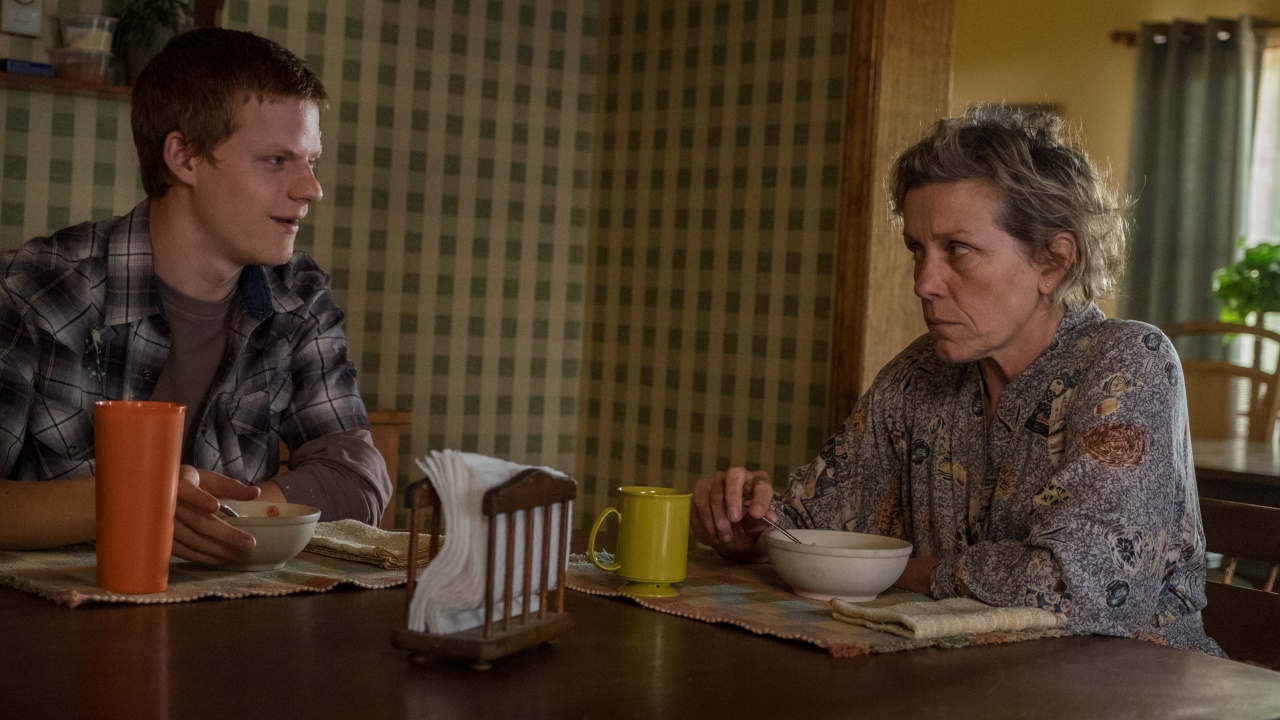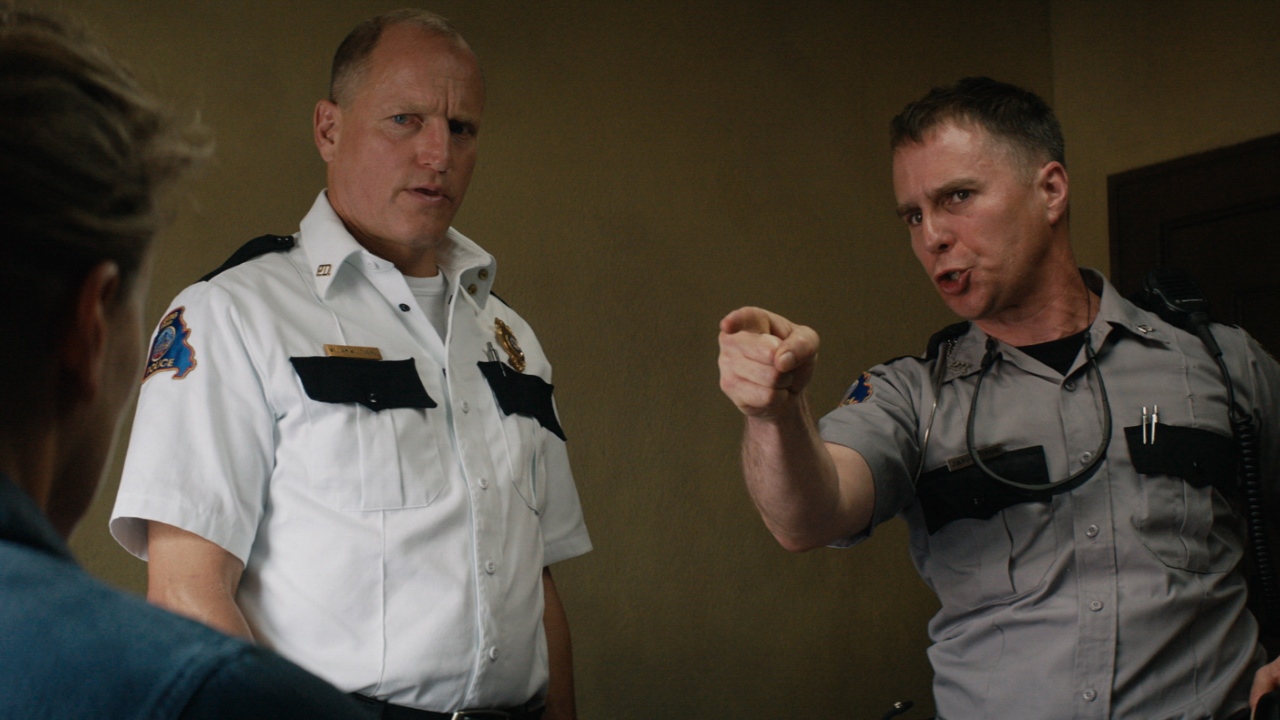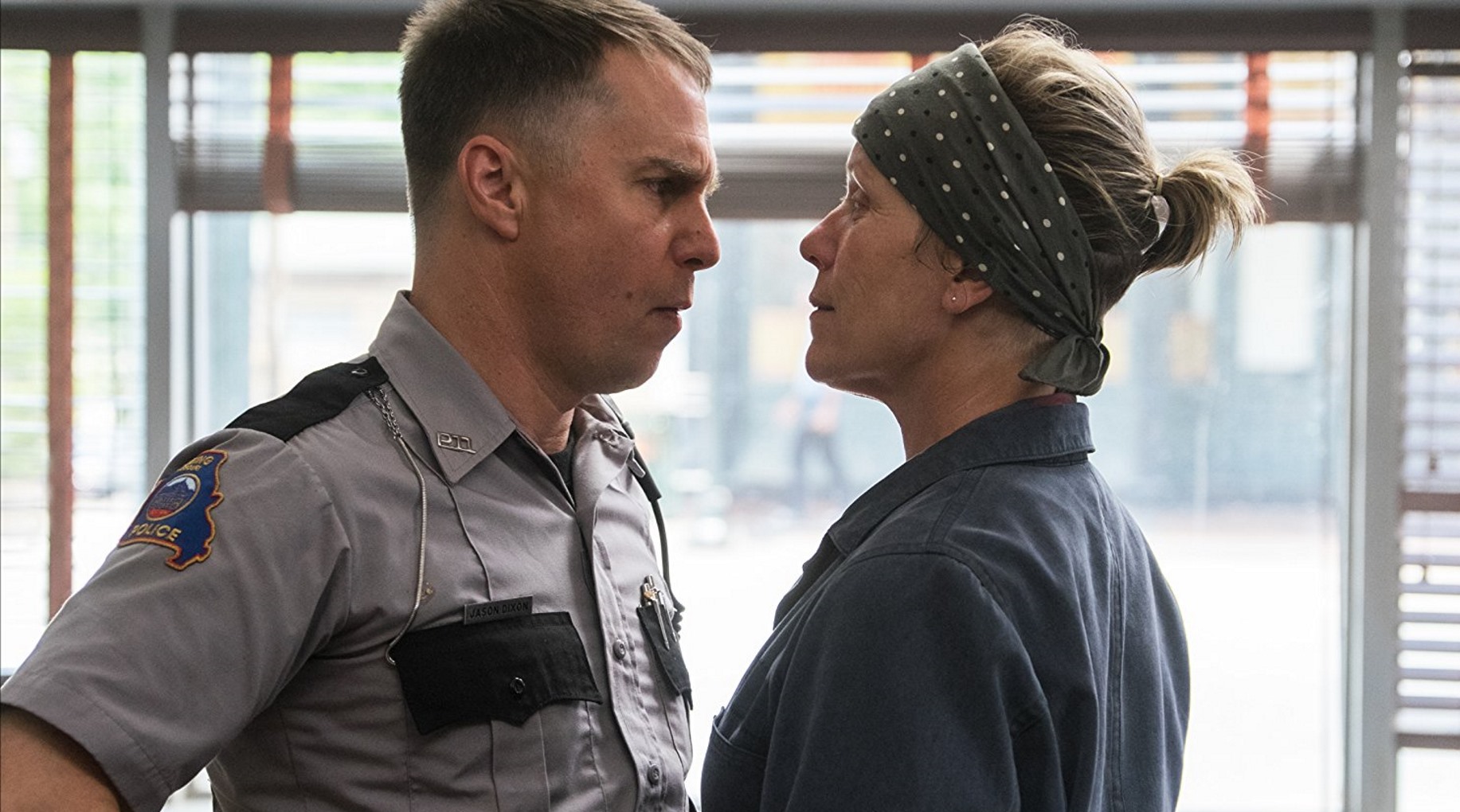GamesRadar+ Verdict
McDormand is an unstoppable force in a fiercely intelligent, profanely poetic movie that shifts tonal gears at breakneck speed.
Why you can trust GamesRadar+
There’s a scene midway through Martin McDonagh’s outstanding black comedy/modern-day western/revenge thriller when two protagonists are arguing nose-to-nose. Eyes are blazing. Spittle is spraying. But then their row comes to a resounding halt in the most unexpected, bloody manner. What happens, which won’t be spoiled here, is at once horrifying and mortifying and sad and gory and diabolically funny. What’s more, the complicated pause it triggers, in viewers and participants alike, is broken by two tender lines of dialogue that are utterly heartbreaking.
Anyone who’s seen British-Irish playwright-turned-filmmaker Martin McDonagh’s 2008 debut In Bruges (we’ll conveniently ignore his shallow, tricksy follow-up Seven Psychopaths) will already know that this is a writer/director who can switch moods in a heartbeat. But terrific third feature Three Billboards Outside Ebbing, Missouri is a notable leap forward, adding compassion and profundity to the volatile mix. It’s these flavours, for all the brassy brilliance on display, that linger longest.

At the heart of the tale stands Mildred Hayes (Frances McDormand), feet planted, eyes kindled. It’s been seven months since her teenage daughter was raped and murdered in her small hometown of Ebbing, Missouri, and the trail, according to Chief Willoughby (Woody Harrelson), has gone cold. Mildred thus decides to light a fire under the police department by hiring three disused billboards on the outskirts of town and adorning them with a hugelettered message to make the cops choke on their doughnuts.
But here’s the twist: Willoughby is no ogre or lunkhead (though the same can’t be said of Sam Rockwell’s vindictive Officer Dixon), but rather a smart, conscientious man who’s much liked by the townsfolk he diligently serves. He’s also dying of pancreatic cancer. None of which deters Mildred from getting all up in his grill at every opportunity. “The time it took you to get out here whining like a bitch, Willoughby, some other poor girl’s probably out there being butchered.”
Watching McDormand and Harrelson take aim at each other while armed with McDonagh’s ornate, vulgar dialogue is like receiving an adrenaline shot to the heart. And another. And then another, their vehement exchanges complicated by a friendship that goes back years. Both actors are at the top of their considerable games, with Harrelson bringing heart and dignity to Willoughby’s muscular authority, and McDormand spinning grandstanding speeches that thrum with rage, mischief and hostility.

But Mildred’s moral centre is unimpeachable. She is, in fact, a hugely likeable, deeply sympathetic figure who would nonetheless take your understanding and grind it into the mud. From pioneer stock, she’s no-nonsense to the bone. “What’s the law on what ya can and can’t say on a billboard?” she asks. “I assume ya can’t say nothing defamatory, and ya can’t say ‘Fuck’? That right?” It’s a powerhouse performance, McDormand’s best since winning an Oscar for 1996’s Fargo. A second golden baldie is surely in the post.
Also in the running will be Rockwell, who does some of his best work with a character who’s mean-spirited, physically abusive, racist… and so much more, as McDonagh’s sparkling screenplay again veers direction to flip assumptions on their head. Three Billboards is a movie in which even the second and third-rung players are gifted fully fleshed characters to inhabit – Caleb Landry Jones, Peter Dinklage and John Hawkes all provide sterling support – and which refuses to tick any screenwriting boxes unless said box is then royally upended.
Initially setting itself up as a frontier-justice drama replete with saloons and guns and populated by white hats and black hats, it writhes and bucks and turns inside out. Stop the film halfway through and you won’t know where it’s going. Stop it again 10 minutes from the end and you won’t be any clearer.
Such refusal to adhere to formula is exhilarating. Displaying versatility and virtuosity in equal measure, McDonagh has fashioned a film that’s cruel and compassionate, noble and ugly, funny and elegiac, showboating and profound. It is a study of violence, authority and privilege, of grief and guilt, of revenge and forgiveness, and it concludes in the most perfect way imaginable. The only way it could, really – and a way that 99 per cent of Hollywood thrillers would not dare to entertain.
Few people outside of the Coens and Tarantino could forge a thriller so bristling with brio. Don’t miss it, or you’ll have Mildred Hayes to deal with…
Jamie Graham is the Editor-at-Large of Total Film magazine. You'll likely find them around these parts reviewing the biggest films on the planet and speaking to some of the biggest stars in the business – that's just what Jamie does. Jamie has also written for outlets like SFX and the Sunday Times Culture, and appeared on podcasts exploring the wondrous worlds of occult and horror.




